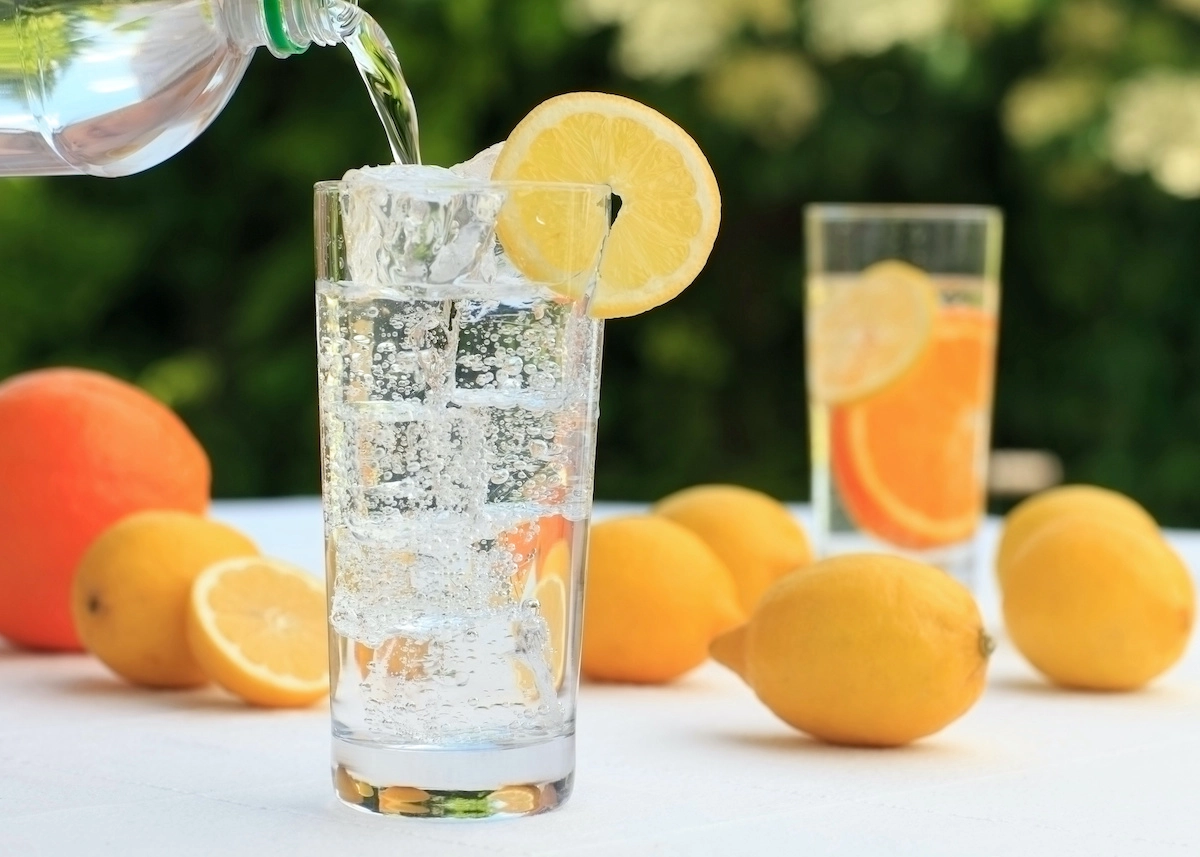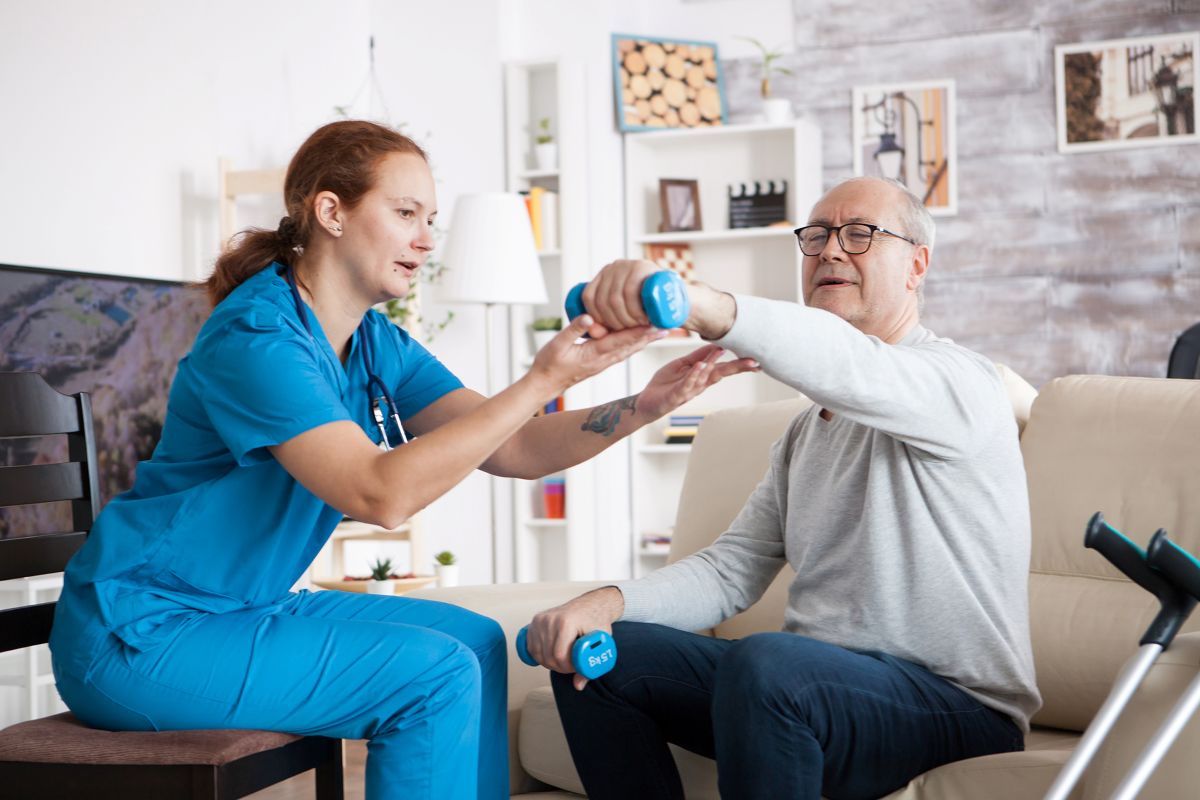
So you’ve swapped soda for seltzer, and now you’re concerned that you’ve simply traded one bad habit for another. Good news: As long as you’re drinking sparkling water with no added sugars, you’ve made an A+ choice.
In many cases, sparkling water is just water—which is, of course, vital to your health. That said, there are a few different kinds of sparkling water, and they’re not all created equally.
Seltzer is artificially carbonated water, plain and simple, though some kinds include natural fruit flavors and/or sugar. (A note: The U.S. Food and Drug Administration technically differentiates between seltzer and sparkling water based on their carbonation processes. For consumer purposes, though, they’re the same.)
Mineral water, which is sourced from a spring or well, is naturally carbonated water that includes minerals like magnesium and calcium.
Club soda is artificially carbonated and enhanced with added minerals like sodium bicarbonate and potassium sulfate.
Tonic water is also artificially carbonated and enhanced with added minerals, including quinine, which provides that signature bitter taste. It also includes sugar or high-fructose corn syrup.
Feel free to crack open sugar-free seltzers and mineral waters to your heart’s delight—but limit tonic water. Not only does it include added sugars, but too much quinine can also cause an upset stomach, headaches, ringing in the ears, as well as other medically serious unpleasant side effects, like organ damage, severe bleeding and changes to your heart rhythm.
Benefits of drinking sparkling water
OK, so you know carbonated water is better for you than sugary soda, juice and energy drinks. But aside from sugar content, what, exactly, makes the bubbly so much better?
1. Helps you hydrate
There’s one benefit so big it bears repeating: hydration, hydration, hydration. Sparkling water is just as hydrating as its bubble-free counterpart, so if you’re struggling to drink enough water during the day, there’s no harm in swapping a glass or two of still water for the fruity, fizzy stuff. Remember, though—no added sugars!
2. Makes you feel full
“Drinking sparkling water may lead to experiencing a short-term, immediate increase in satiety, or fullness,” Sullivan says. Some studies show that carbonated water keeps you feeling fuller for longer—and may even keep food in your stomach for longer than regular water.
3. May relieve constipation
In one study, people experiencing constipation after a stroke reported significant relief after two weeks of drinking sparkling water. Another study found that sparkling water brought relief to people with indigestion.
4. Eases the transition from sugary drinks
If you’re trying to kick a soda addiction or scale down on daily lattes, sparkling water could be the ticket to tricking your brain out of bad habits. You can even use herbs, fruit or cucumber to enhance the flavor of sparkling water.
“It can be difficult to transition from sweet drinks to water, but flavored seltzers and sparkling water can help,” Sullivan says. “Water, whether plain or carbonated, is better than high-calorie, sugar-infused drinks.”
The side effects of sparkling water
As long as you’re choosing sugar-free, caffeine-free varieties, there aren’t many risks to worry about. “There is very little specific research showing that sparkling water has a negative impact on health,” Sullivan says. But there are a few things to watch out for.
Stomach issues
You might experience temporary but unwanted side effects from sparkling water if you’re prone to tummy troubles:
- Burping.
- Bloating.
- Gas.
- Stomach pain.
If you find that your stomach doesn’t tolerate the carbonation well, scale back your sparkling water intake and stick to still water.
Teeth troubles
“Sparkling water may also contain minerals, whether natural or infused during the process of carbonation, that can lead to changes in your tooth enamel,” Sullivan warns. Be on the lookout for anything that includes citric acid, phosphorous or sugar, all of which can contribute to enamel erosion. Regular seltzer, though, has not been shown to have a significant effect on enamel.
Keep your sparkling water simple
“Sparkling water may contain sugar, artificial sweeteners, caffeine and other additives,” Sullivan emphasizes, “but the best kind is the simple, straightforward kind, just water and carbonation.”
Sugar is associated with heart disease, diabetes, obesity and other chronic conditions; artificial sweeteners can cause stomach issues. And although caffeine is typically safe for healthy adults in limited amounts, there’s no safe level of caffeine intake for kids.
In other words, your sparkling water only qualifies as water if it’s not filled with other stuff. As long as you stick to the basics, feel free to drink your fill of the fizz.
Source: https://health.clevelandclinic.org/is-sparkling-water-healthy/










